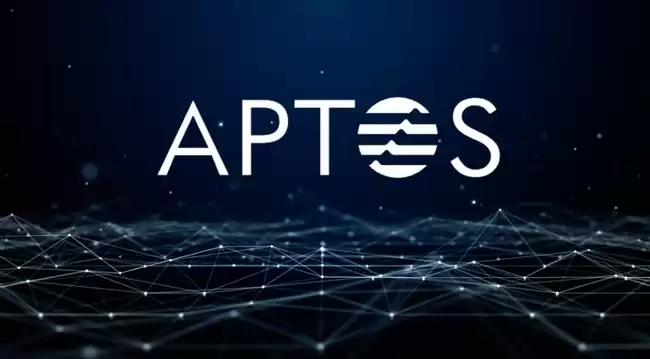-
 bitcoin
bitcoin $87959.907984 USD
1.34% -
 ethereum
ethereum $2920.497338 USD
3.04% -
 tether
tether $0.999775 USD
0.00% -
 xrp
xrp $2.237324 USD
8.12% -
 bnb
bnb $860.243768 USD
0.90% -
 solana
solana $138.089498 USD
5.43% -
 usd-coin
usd-coin $0.999807 USD
0.01% -
 tron
tron $0.272801 USD
-1.53% -
 dogecoin
dogecoin $0.150904 USD
2.96% -
 cardano
cardano $0.421635 USD
1.97% -
 hyperliquid
hyperliquid $32.152445 USD
2.23% -
 bitcoin-cash
bitcoin-cash $533.301069 USD
-1.94% -
 chainlink
chainlink $12.953417 USD
2.68% -
 unus-sed-leo
unus-sed-leo $9.535951 USD
0.73% -
 zcash
zcash $521.483386 USD
-2.87%
What is APT coin? What can APT coins do? How to store APT coins?
APT coin, a cryptocurrency powering the Aptos blockchain, enables dApps, NFTs, and DeFi protocols, offering transaction fees, staking rewards, and governance participation.
Oct 11, 2024 at 09:47 pm

APT coin, also known as Aptos, is a cryptocurrency and blockchain platform designed for decentralized applications (dApps), Non-Fungible Tokens (NFTs), and decentralized finance (DeFi) protocols. Aptos is built with a novel consensus mechanism called DiemBFT, which aims to provide high throughput, low latency, and fault tolerance.
What Can APT Coins Do?APT coins are the native cryptocurrency of the Aptos blockchain and can be used for various purposes:
- Transaction Fees: APT coins are used to pay for transaction fees on the Aptos network.
- Staking: APT coin holders can stake their tokens to earn rewards and participate in the governance of the Aptos network.
- Governance: APT coin holders can participate in the decision-making process of the Aptos blockchain by voting on proposals and electing validators.
APT coins can be stored in various cryptocurrency wallets:
- Hardware Wallets: Hardware wallets, such as Ledger and Trezor, provide the highest level of security for storing cryptocurrencies offline.
- Software Wallets: Software wallets, such as Aptos Wallet, are convenient for storing and managing APT coins on desktop or mobile devices.
- Exchange Wallets: Crypto exchanges, such as Binance and Coinbase, provide custody services for APT coins, but it is important to note that these wallets may not be as secure as hardware or software wallets.
Disclaimer:info@kdj.com
The information provided is not trading advice. kdj.com does not assume any responsibility for any investments made based on the information provided in this article. Cryptocurrencies are highly volatile and it is highly recommended that you invest with caution after thorough research!
If you believe that the content used on this website infringes your copyright, please contact us immediately (info@kdj.com) and we will delete it promptly.
- MARA Stock Surges as Bitcoin Traders Eye Key Levels Amidst Market Volatility
- 2026-02-05 04:25:01
- Ethereum's Wild Ride: Gas Fees, Mega Rally Dreams, and Vitalik's L2 Reality Check Hit the Big Apple
- 2026-02-05 04:20:01
- Trump Token, Digital Footprint, and $MAXI: A New Era of Personality-Driven Crypto and 'Gym Bro' Economics
- 2026-02-05 04:20:01
- Bitcoin's Bumpy Ride: Market Weakness Collides with Regulatory Optimism
- 2026-02-05 04:10:01
- Exaverse Roars into the Roguelike Scene: A Dinosaur Adventure Awaits!
- 2026-02-05 00:30:01
- SpaceX, Dogecoin, and the Moon Mission: A New Era of Crypto in Space
- 2026-02-05 04:05:02
Related knowledge

What is Ethereum’s Slashing mechanism and how to punish malicious behavior?
Feb 20,2025 at 03:08am
Key PointsOverview of slashingDifferent types of slashing in EthereumIncentives and consequences of slashingIdentifying and reporting slashed validato...

What is the verifier node of Ethereum and how to become a verifier?
Feb 19,2025 at 06:00pm
The Verifier Node of Ethereum: A Comprehensive GuideKey Points:What is a Verifier Node?How to Become a Verifier NodeResponsibilities and Rewards of a ...

What is Ethereum’s staking, and how to participate and earn money?
Feb 19,2025 at 04:37pm
Key Points:Understanding Ethereum's Staking MechanismSteps to Participate in StakingBenefits and Rewards of StakingSecurity and Risk ConsiderationsTec...

What is Ethereum’s DAO (Decentralized Autonomous Organization) and how does it work?
Feb 20,2025 at 03:12am
Key PointsDefinition and Structure of a DAOGovernance and Decision-Making in DAOsBenefits and Use Cases of DAOsChallenges and Limitations of DAOsWhat ...

What is Ethereum's multi-signature wallet and how to improve security?
Feb 20,2025 at 02:18pm
Key Points:Understanding the Concept of a Multi-Signature WalletBenefits and Drawbacks of Multisig WalletsRequirements for Setting Up a Multisig Walle...

What is Ethereum's oracle and how to provide data for smart contracts?
Feb 21,2025 at 01:30am
Key Points:Understanding the concept of oracles in EthereumExploring different types of oraclesDetailed guide on how to provide data for smart contrac...

What is Ethereum’s Slashing mechanism and how to punish malicious behavior?
Feb 20,2025 at 03:08am
Key PointsOverview of slashingDifferent types of slashing in EthereumIncentives and consequences of slashingIdentifying and reporting slashed validato...

What is the verifier node of Ethereum and how to become a verifier?
Feb 19,2025 at 06:00pm
The Verifier Node of Ethereum: A Comprehensive GuideKey Points:What is a Verifier Node?How to Become a Verifier NodeResponsibilities and Rewards of a ...

What is Ethereum’s staking, and how to participate and earn money?
Feb 19,2025 at 04:37pm
Key Points:Understanding Ethereum's Staking MechanismSteps to Participate in StakingBenefits and Rewards of StakingSecurity and Risk ConsiderationsTec...

What is Ethereum’s DAO (Decentralized Autonomous Organization) and how does it work?
Feb 20,2025 at 03:12am
Key PointsDefinition and Structure of a DAOGovernance and Decision-Making in DAOsBenefits and Use Cases of DAOsChallenges and Limitations of DAOsWhat ...

What is Ethereum's multi-signature wallet and how to improve security?
Feb 20,2025 at 02:18pm
Key Points:Understanding the Concept of a Multi-Signature WalletBenefits and Drawbacks of Multisig WalletsRequirements for Setting Up a Multisig Walle...

What is Ethereum's oracle and how to provide data for smart contracts?
Feb 21,2025 at 01:30am
Key Points:Understanding the concept of oracles in EthereumExploring different types of oraclesDetailed guide on how to provide data for smart contrac...
See all articles










































































